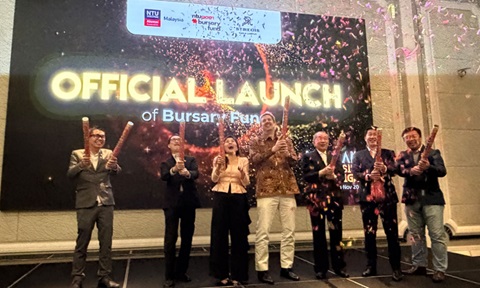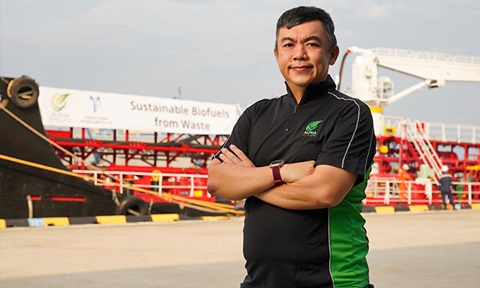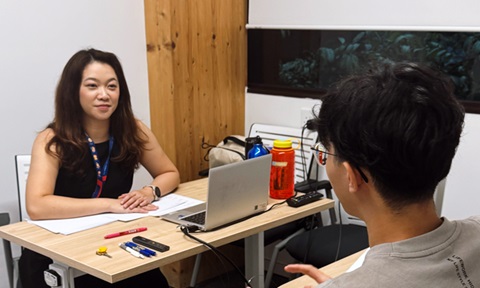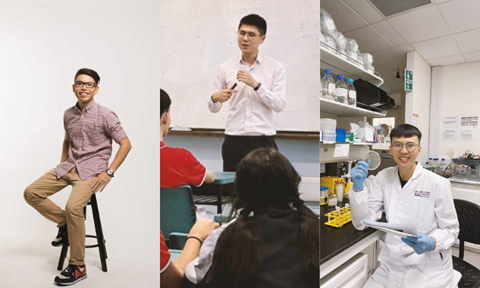Abandoned bikes put to good use in Myanmar to help poor students
NTU alumnus Mike Than shares how he hopes to empower students in developing countries to go to school by gifting them bicycles from failing bike-sharing companies.
Not too long ago in Singapore, you couldn’t walk down the streets and sidewalks without bumping into rental bicycles in bright orange and yellow regalia. Appearing en masse when the bike-sharing trend took off in 2017, they seemed to be the new model of urban mobility, helping to solve what is known as the ‘last-mile problem’ in transportation. Need to get to the nearest MRT station? Why not cycle instead of walk?
However, late last year, increased regulatory efforts by local governments threw many bicycle-sharing companies into a crisis. As these companies withdrew their operations from many countries, a massive number of bicycles were abandoned, piling up in bicycle graveyards.
In March 2019, NTU alumnus Mike Than Tun Win (NBS/2008), a Myanmar-born entrepreneur and philanthropist, started an initiative to turn the problem of bicycle waste around, seeing it as an opportunity to benefit the underprivileged in developing countries. Called Lesswalk, the project involves buying over bicycles from defunct bicycle-sharing firms and refurbishing them for distribution to school children in rural villages. But the bicycles are more than just a mode of transportation in Mike’s mind. “LessWalk is really about access to education,” he quipped.
250849a5-77db-42f4-9ff7-91575ebc351c.jpg?Status=Master&sfvrsn=d11ece57_5)
A heart for the community
Grateful for the 18 years he spent studying in Singapore, Mike was confronted with the stark reality of limited access to education when he returned to Myanmar in 2011. UNICEF reports that adolescents in Myanmar are most at risk of missing out on education. Many children, from the ages of 10-12, drop out of school, with school attendance falling to about 30 percent by age 17. This is compounded by the fact that some 55 percent of children in Myanmar live in poverty, with many entering adulthood with little or no education.
Thus, an unorthodox idea occurred to Mike in 2018 as he observed the meteoric rise and precipitous decline of bicycle sharing services globally. He mused that should bike-sharing companies implode from what appeared to be a non-sustainable business model locked in regulatory grey space, he would be able to buy a massive number of bicycles cheaply and donate them to students in need.
Growing up in Mandalay, Myanmar, Mike used to walk long distances to get to school, having no option for other modes of transportation. The situation has not changed much even today. In rural villages, students have to walk over an hour to reach their schools. This daily journey, both tiring and time-consuming, is one reason why many children quit school altogether, he explained.
“I think it is very sad that access to education is limited because families cannot afford a better way for children to travel to school,” he said.
Turning waste into opportunity
As bike-sharing businesses crumbled towards the end of 2018, Mike put his idea into action. Faced with the prospect that millions of bicycles might be heading to waste, he knew he had to act quickly. “This was a once-in-a-lifetime opportunity, with a limited time window. Not only could I help to solve some of the problems with bicycle waste, I can also benefit many students for generations to come,” he said.
On 1 March 2019, Mike shared his idea on social media and asked to be connected with bicycle graveyards in the region. He had planned to purchase and import 10,000 bicycles into Myanmar, donating them to students. Not only was he willing to pay for the logistics—among other fees—he also committed S$500,000 of his own money to kick-start the project.
Three months later, the first batch of bicycles he purchased arrived in Myanmar and was ready for distribution. The bicycles were first refurbished—repainted to promote the Lesswalk movement, refitted with manual locks instead of digital ones, and had additional smaller seats installed so that students could ferry siblings to school. The movement greatly benefitted students who lived in rural villages at least two kilometres away.
a72ec14d-f437-4c4d-8ace-0e20025b1bcb.jpg?Status=Master&sfvrsn=385ccc74_5)
The beginning of a global movement
Mike says that the first 10,000 bicycles are just the tip of the iceberg. He plans to take the Lesswalk campaign further, expanding the scale of its operations.
“We have around nine million students in Myanmar and a majority of them are living in poverty,” he said, “I hope to bolster the number of bicycles in Myanmar to 100,000. With the publicity and approaching sponsorships, I believe it is time to expand our operations.”
Apart from securing corporate sponsorship, his initiative has also attracted the attention of governments from China and Europe. Ultimately, he aspires for Lesswalk to become the first global movement that transfers excess bicycles to underprivileged students around the world.
487b2f54-6359-4c5e-842e-cd5240d5330f.jpg?Status=Master&sfvrsn=630ddfca_9)






